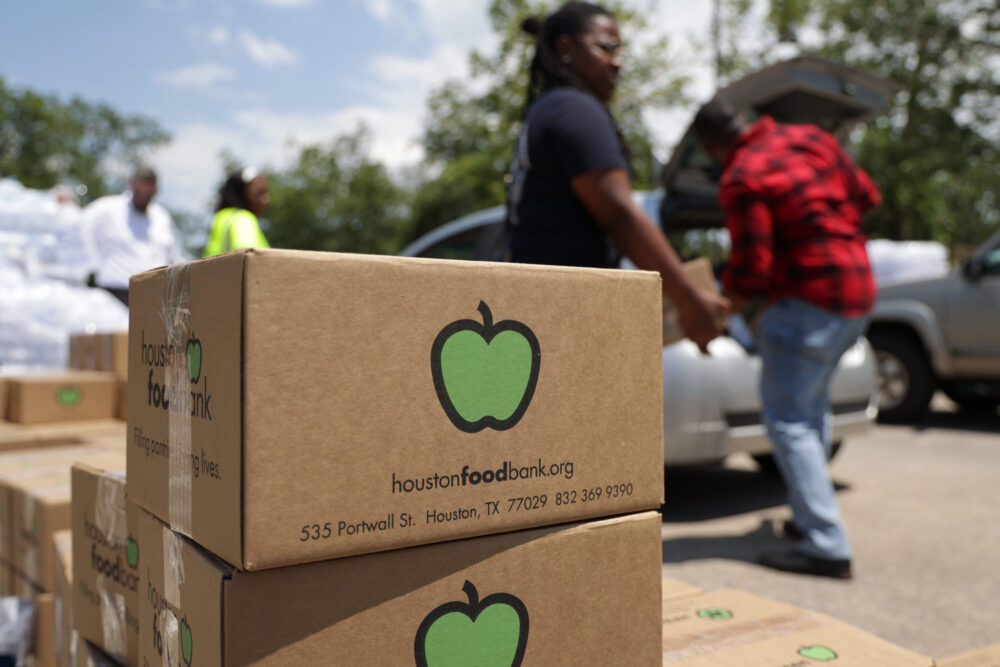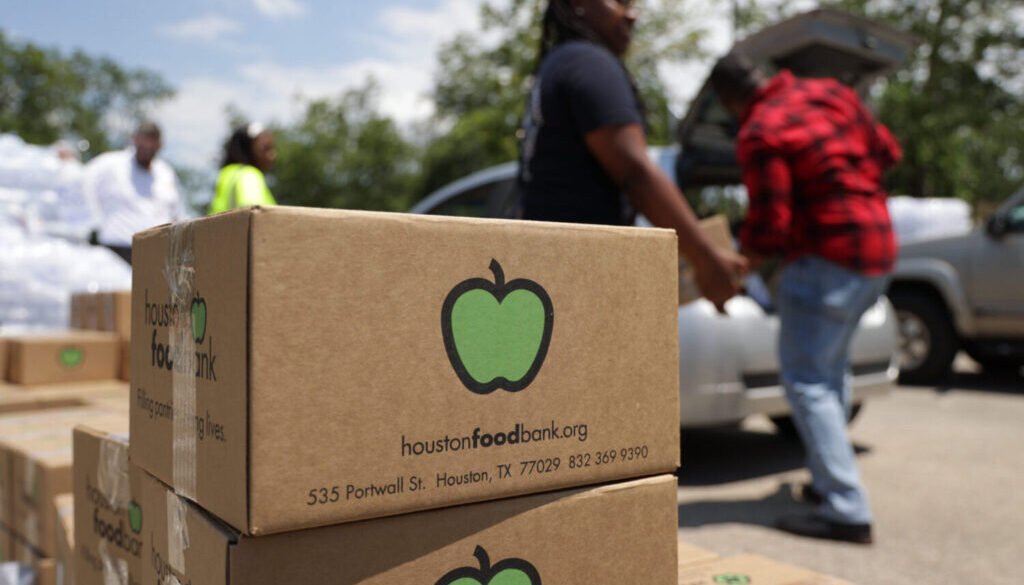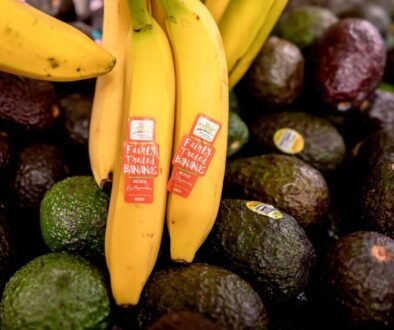Houston Food Bank asks city council for free water for urban farms – Houston Public Media
[ad_1]

Lucio Vasquez/Houston Public Media
The Houston Food Bank and Plant it Forward, a nonprofit farming organization, pitched the idea of exempting urban farms from water fees to the Houston City Council’s resilience committee on Thursday.
“Urban farms operate on razor-thin margins and face several existential challenges,” said Plant It Forward farm program director Rachel Folkerts.
Plant It Forward works with a network of independent farmers from refugee backgrounds. It hosts eight farms at four locations around Houston. Folkerts said a typical urban farm, operating on half an acre of land, might earn $50,000 in produce sales per year and spend $1,000-$2,000 on water bills, “which is very significant for these micro-businesses.”
The organizations’ presentation looked at seven farming locations across Houston with a total of 9 acres. They used 4.2 million gallons of water per year, costing the farmers about $32,000.
Katherine Byers, government relations officer with the Houston Food Bank, said the farmers could use the savings from free water to purchase equipment that would protect crops from the cold and insects, increasing the overall output of produce.
“We feel it’s a small monetary investment on the part of the city that will provide a return on investment that will benefit this city and, particularly, those who are food insecure do not have access to fresh, nutritious produce,” Byers said.
Under their proposal, farming operations would qualify if they distribute more than 50% of produce through sale or community distribution, use more than 50% of their growing space to grow produce for human consumption and maintain at least 5,000 square feet of growing space for the majority of the year. Both for-profit and nonprofit operations would be eligible.
Council member Abbie Kamin, vice chair of the resilience committee, pointed out the city’s water system doesn’t actually generate revenue for the city.
“Whatever we are billing is solely a reimbursement, a recoupment for expenditures, which puts the city in a very challenging position financially,” Kamin said. “We’re already in, you know, dire straits financially, but we’re not profiting off of this, so there’s not much wiggle room.”
More than 500,000 Houstonians live in “food deserts” as defined by the U.S. Department of Agriculture, meaning they have to travel more than 1 mile to find a retailer with nutritious food. Overall, 17% of Houston and Harris County residents and 24% of the children in the region are considered food-insecure. The Houston Food Bank receives grants from the USDA intended to fuel growth at local farms and help food-insecure communities.
Council member Twila Carter indicated she’s inclined to listen to the food bank when it asks for something.
“The Houston Food Bank continues to step up in times of need … on food distributions, day after day after day, whether through COVID or through storms,” Carter said. “Certainly the ask of the Houston Food Bank is always there, we’ve always got a need, but the ask from the Houston Food Bank is rare.”
[ad_2]




